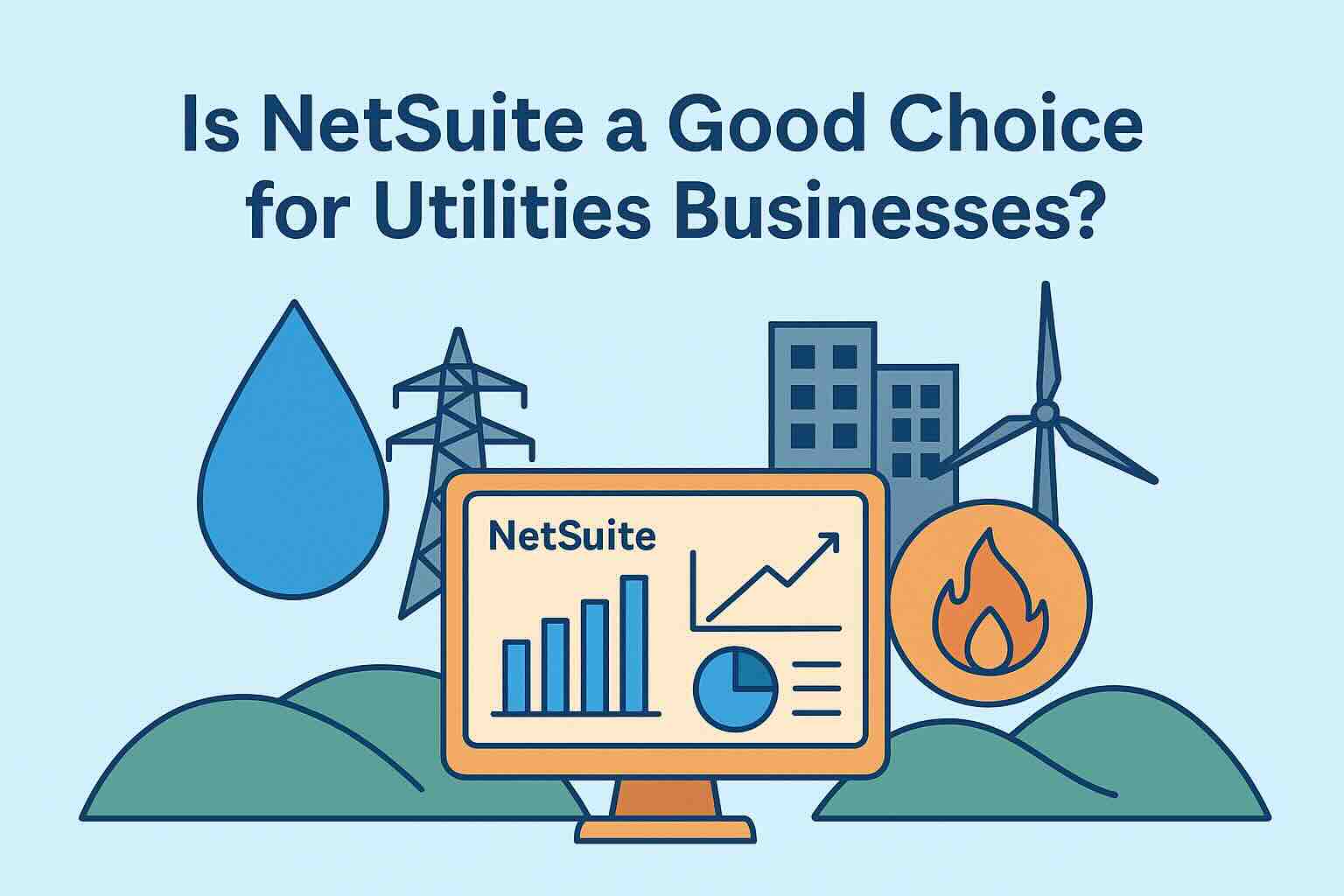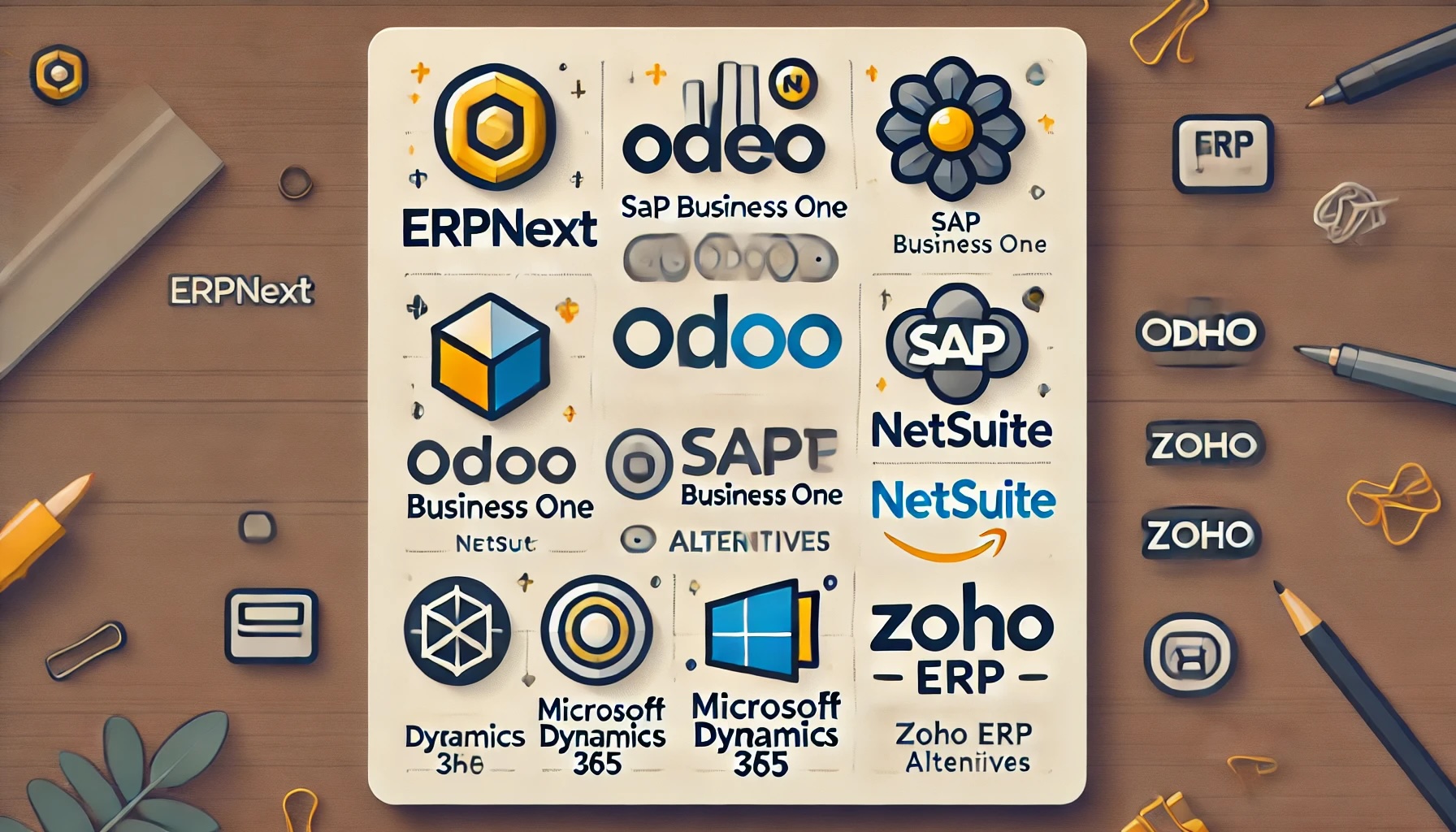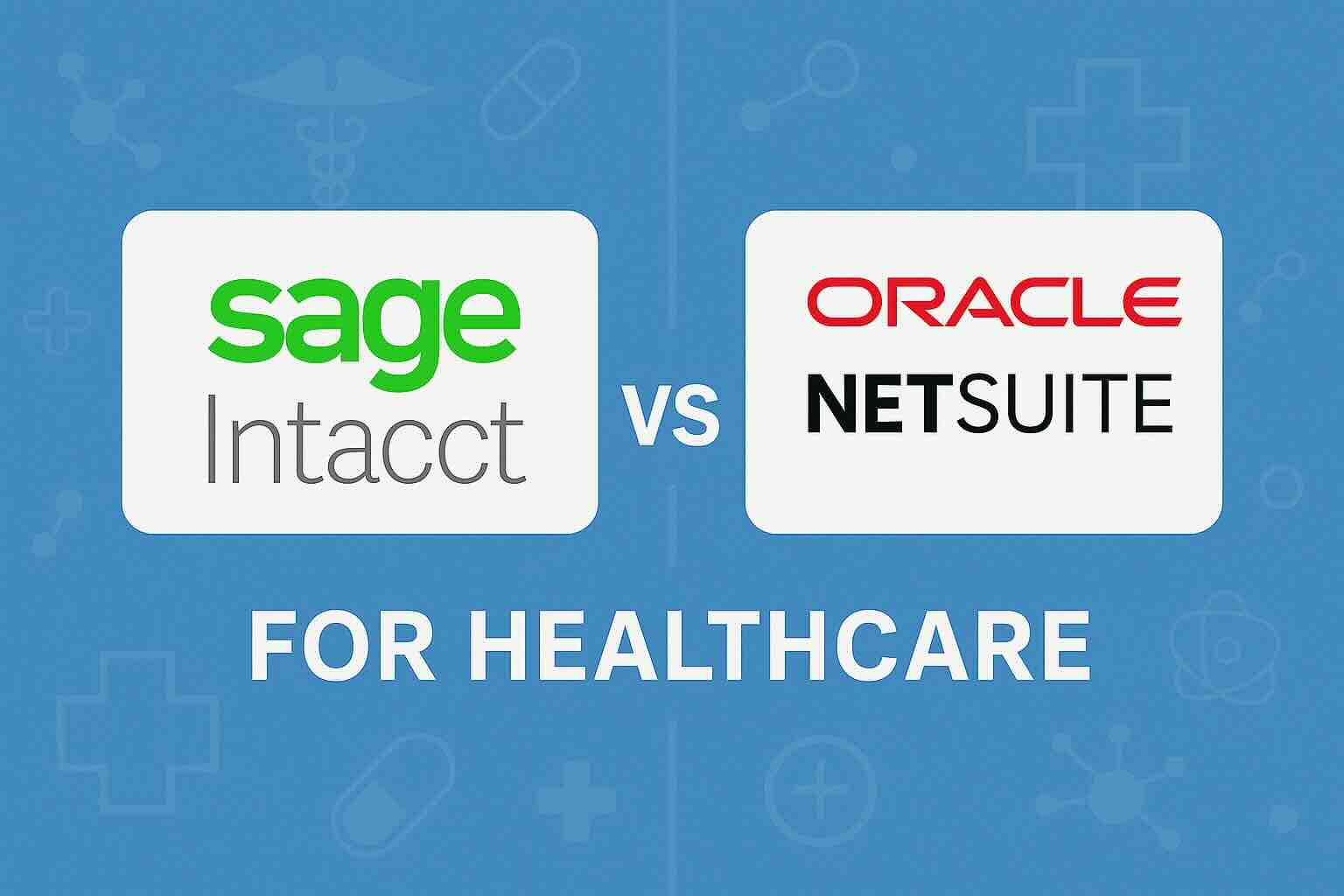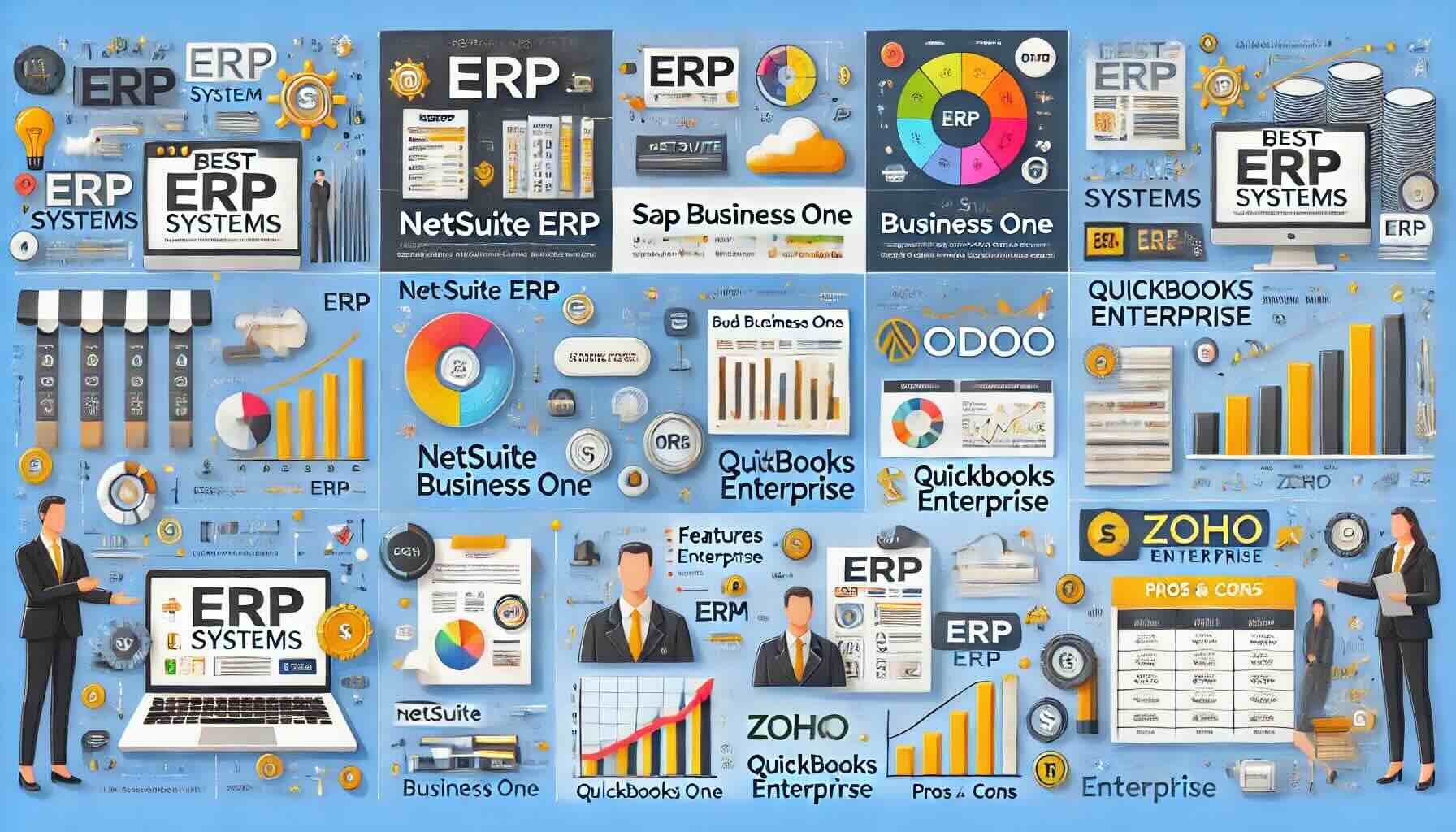Is NetSuite a Good Choice for Utilities Businesses?

The utilities sector, electricity, water, gas, and renewable energy providers – faces intense pressure to modernise operations, streamline billing, and stay compliant with regulations. Many organisations are moving away from legacy systems to cloud-based Enterprise Resource Planning (ERP) platforms. One solution gaining traction is NetSuite for Utilities. But is it the right choice for your business? Let’s explore.
Why Utilities Businesses Are Re-Evaluating Their Systems
Utility companies manage complex processes every day:
-
Customer billing and rate management (flat, tiered, seasonal, or volumetric charges)
-
Asset and infrastructure management (pipes, grids, substations, maintenance schedules)
-
Regulatory compliance across financial, environmental, and safety standards
-
Customer service and self-service portals
-
Budgeting, forecasting, and cost recovery
-
Integration with field operations and IoT/SCADA systems
Traditional, siloed systems make these tasks cumbersome. An integrated ERP can unify financials, operations, and customer data, offering a real-time view of performance. That’s where NetSuite for Utilities comes in.
What NetSuite for Utilities Offers
1. Utility Billing and Customer Self-Service
NetSuite includes modules tailored for public sector and utility organisations. These support multi-rate and tiered billing, enabling providers to manage complex pricing structures efficiently. A built-in customer portal allows end users to view and pay bills, request service, or report issues online, reducing manual workload and improving satisfaction.
2. Unified Financial and Operational Visibility
Because NetSuite is cloud-based, utilities can consolidate financials, budgeting, and operational data across subsidiaries or regions. This real-time visibility helps decision-makers manage costs, track asset depreciation, and plan capital expenditures more effectively.
3. Strong Reporting and Compliance Tools
Regulatory reporting is critical for utilities. NetSuite offers dashboards, KPIs, and customisable reports that make compliance easier. Whether you need to track subsidies, grants, or environmental metrics, you can do it from a single platform.
4. Integration and Scalability
Utility providers often rely on a patchwork of systems. NetSuite’s API and modular design make it easier to integrate with existing technologies, from field service apps to IoT sensors. Its cloud architecture also means your ERP scales as you expand service areas or add new business lines.
Potential Challenges and Considerations
While NetSuite for Utilities is powerful, it’s not a magic bullet. Here are a few factors to weigh:
-
Complex Field Operations: Highly specialised systems such as SCADA, outage management, or advanced meter telemetry are not native to NetSuite and may require significant integration.
-
Implementation Cost and Timeline: Migrating from legacy systems can be time-intensive and costly, especially for large utilities.
-
Add-On Costs: Achieving full functionality for every process may require extra modules or partner solutions.
-
Local Regulatory Requirements: Ensuring NetSuite meets your jurisdiction’s rules might require region-specific configuration.
-
User Training and Change Management: Even the best software underperforms without buy-in; staff training and change management are crucial.
When NetSuite for Utilities Makes Sense
NetSuite shines for utilities that:
-
Want a single, cloud-based platform for billing, financials, and customer service.
-
Operate across multiple regions or subsidiaries with varied tariff structures.
-
Need modern dashboards and forecasting tools to drive better decision-making.
-
Have leadership support and budget for implementation and integration.
In these scenarios, NetSuite can reduce manual processes, improve customer satisfaction, and deliver the data transparency needed for regulatory compliance.
When You Might Look Elsewhere
NetSuite may be less ideal if:
-
Your organisation’s field operations and grid management rely heavily on niche, real-time control systems.
-
Your IT budget is very limited and you need an off-the-shelf solution with minimal customisation.
-
You require an extremely fast deployment with little room for change management.
In such cases, specialist utility ERP or billing platforms might be a better starting point, with the option to integrate financials later.
Final Thoughts: Is NetSuite a Good Choice?
The bottom line: NetSuite for Utilities can be a very strong choice for organisations that need an integrated, scalable ERP to manage financials, billing, and customer service in one platform. Its cloud architecture, customisable modules, and strong reporting make it well suited to modernising utility operations.
However, the best results come when you approach implementation strategically – assessing integration needs, budgeting for add-ons, and investing in training. For utilities ready to modernise, NetSuite offers a robust foundation to support long-term growth and compliance. To find out more about NetSuite you can visit this link.
Not Sure If NetSuite Is the Best Fit? Try Compare ERP
Implementing the right ERP system could be the game-changer your business needs. With our AI-powered Compare ERP tool, you can effortlessly explore and compare solutions tailored to your unique business needs. Our advanced engine analyses millions of data points across 100+ ERP solutions, delivering your top three picks based on your business priorities.
Best of all, it’s completely free. Take the first step toward streamlining operations and boosting productivity and start comparing today!









